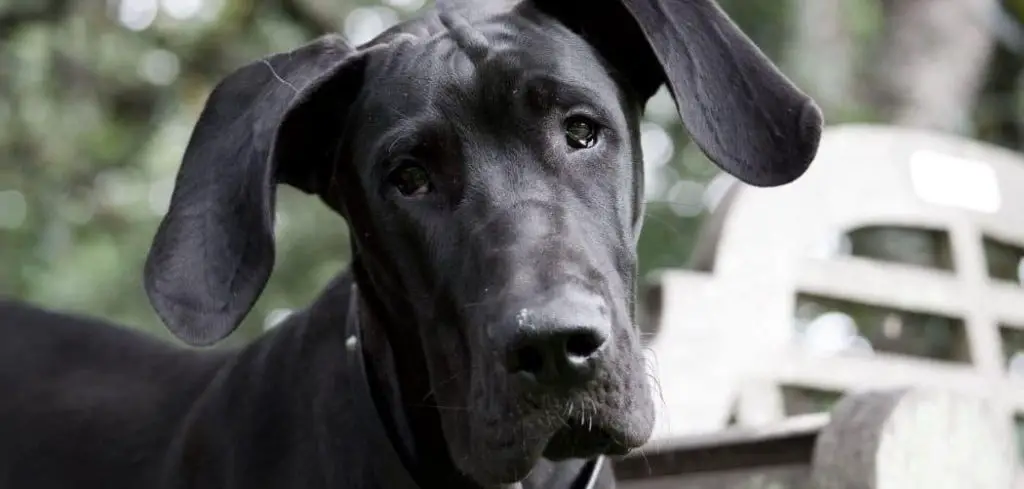A dog excessively licking and swallowing can be worrying for any dog owner, as it may indicate underlying health issues or behavioral problems.
When a dog frequently licks and swallows, it’s important to pay attention to accompanying symptoms and patterns to ensure prompt care.
We outline the common reasons why a dog may excessively lick things, what you can do at home, and when to seek veterinary help.
Dog Excessively Licking Things — Why It Happens
Dogs may lick things or objects, themselves, or even the air due to stress, boredom, or underlying health issues. Some dogs develop compulsive licking habits, while others may lick to soothe pain or irritation. Common triggers include allergies, infections, digestive issues, and anxiety.

Dog Excessively Licking Things: Common Causes
Allergies
Allergies are a frequent cause of excessive licking in dogs. Environmental allergens such as pollen, dust, or mold can irritate the skin and paws, prompting dogs to lick for relief.
Food allergies may also manifest as increased licking of certain areas, including the paws, belly, or surfaces around the home.
Owners might notice redness, swelling, or a distinct odor in areas being licked. If left unchecked, chronic licking can lead to skin infections and secondary complications.
Read more: Dog Excessively Licking Floor (Signs to watch out for)
Skin Infections and Irritations
Bacterial, fungal, or yeast infections often cause discomfort that leads to excessive licking.
These infections can develop in response to cuts, scrapes, or previously irritated areas. A dog may repeatedly lick a particular spot that feels itchy, hot, or painful.
Signs can include redness, crusting, hair loss, or an unpleasant smell. Ignoring infections can worsen the condition, potentially leading to more severe dermatological issues.
Dental or Oral Issues
Pain or discomfort in the mouth may cause a dog to lick objects or surfaces excessively.
Tooth decay, gingivitis, or oral infections can create a sensation that dogs attempt to soothe through licking.
Owners may notice drooling, bad breath, or difficulty eating alongside the licking behavior.
Untreated dental issues can cause systemic health problems, including heart and kidney complications.
Gastrointestinal Upset
Dogs sometimes lick surfaces due to nausea or digestive discomfort. Stomach irritation, food intolerances, or gastrointestinal disorders may trigger this behavior.
Signs include frequent licking of floors, walls, or objects, as well as vomiting, diarrhea, or decreased appetite.
Persistent gastrointestinal issues can affect nutrient absorption and overall health, making timely veterinary evaluation crucial.
Anxiety and Stress
Behavioral causes, such as anxiety or stress, can result in compulsive licking. Dogs may lick as a coping mechanism during periods of separation, loud noises, or environmental changes.
Owners might notice repetitive patterns, licking specific items, or increased agitation during stressful situations.
Without intervention, stress-related licking can become chronic and interfere with a dog’s daily life.
Boredom or Lack of Mental Stimulation
Sometimes, excessive licking is a sign of boredom or insufficient mental stimulation. Dogs confined indoors or lacking enrichment activities may resort to licking as a self-soothing habit or a form of entertainment.
Signs include generalized licking of floors, furniture, or even air, often in conjunction with restlessness or pacing.
Providing adequate mental and physical stimulation is essential to prevent the habit from becoming compulsive.
What to Do If Your Dog Is Excessively Licking Things
Begin by observing the dog’s environment and daily routine. Remove potential irritants and ensure the dog has safe, clean surfaces to explore.
Keep the dog’s skin and paws clean and moisturized if dryness or irritation is suspected.
Offer toys, puzzles, and interactive games to occupy the dog’s mind and reduce boredom-driven licking.
Monitor for additional symptoms like vomiting, diarrhea, or behavioral changes, as these may indicate underlying medical issues.
When to Call or Visit Your Vet
Contact a veterinarian if the excessive licking is persistent or accompanied by redness, swelling, or hair loss.
Seek immediate attention if the dog shows signs of pain, lethargy, vomiting, diarrhea, or oral discomfort.
Sudden onset of compulsive licking may indicate a serious underlying condition requiring prompt diagnosis. Your vet can perform examinations, tests, and recommend treatments ranging from topical medications to behavioral interventions.
Read more: Dog licking excessively (Discover what it might mean)
Key Takeaway
Excessive licking is a behavior that can indicate both physical discomfort and behavioral issues.
Observing patterns, maintaining a clean environment, and providing mental stimulation can help manage minor cases.
However, persistent or severe licking requires veterinary evaluation to rule out allergies, infections, dental problems, or stress-related behaviors.
With careful attention and appropriate interventions, owners can help their dogs stay healthy, comfortable, and happy.
